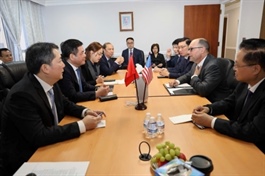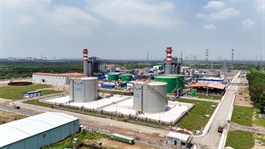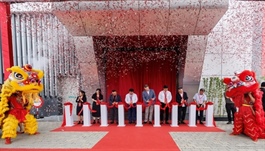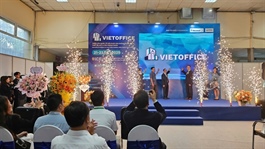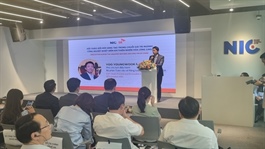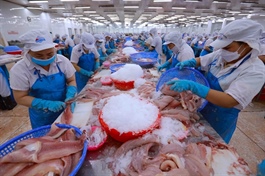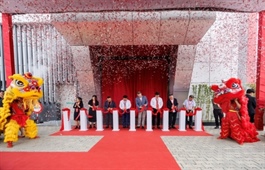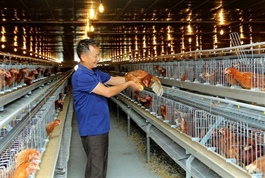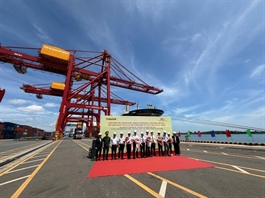Seeking to develop sustainable aviation fuel market in Vietnam
Seeking to develop sustainable aviation fuel market in Vietnam
Deputy Prime Minister Tran Hong Ha on May 20 chaired a meeting in Hanoi on developing sustainable aviation fuel (SAF), and participating in the Carbon Offsetting and Reduction Scheme for International Aviation (CORSIA) run by the International Civil Aviation Organization (ICAO).
He emphasised the urgent need to develop a master plan for SAF development, participating in CORSIA towards achieving two goals of ensuring the competitiveness of the aviation industry, and implementing a commitment to reduce greenhouse gas emissions.
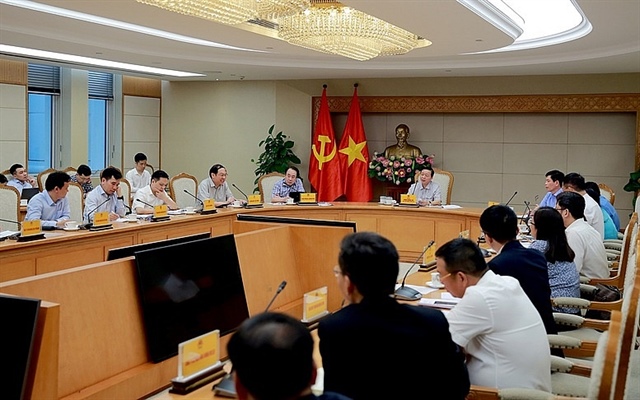
Representatives of ministries, sectors, and enterprises proposed many solutions for developing SAF in Vietnam. Photo: VGP |
"Participation in the ICAO's CORSIA is not only an international responsibility, but also an opportunity for the Vietnamese aviation industry to improve its capacity and proactively adapt to increase technical standards. SAF is also an important part of a strategy for developing a circular, green, and sustainable economy," he said.
At the event, representatives of the Ministry of Agriculture and Environment, the Ministry of Industry and Trade, aviation enterprises, airport service operators, and petroleum businesses discussed adaptation capacity, assessed the level of impact on economic efficiency and competitiveness by using SAF, participating in CORSIA; scale and demand for SAF use in Vietnam; the ability to supply and produce SAF among domestic petroleum enterprises; and support policies to encourage the production, business, and distribution of SAF.
The DPM assigned the Civil Aviation Authority of Vietnam to complete a dossier and report to the Ministry of Construction (MoC) to submit to the competent authority for approval.
Domestic petroleum production and processing enterprises were asked to draw up plans to develop SAF production, including technology, land, tax, finance, and market assessment to ensure efficiency and avoid internal competition.
The Vietnam Airports Corporation will coordinate with aviation fuel suppliers to review and develop storage infrastructure, pipelines, and SAF fuel filling systems at major international airports.
The Ministry of Agriculture and Environment shall preside over and coordinate with relevant parties to develop a legal framework for the carbon market, implement a carbon credit exchange mechanism, and recognise the aviation industry's emission calculation method in accordance with ICAO standards.
He also directed the Ministry of Finance and the Ministry of Foreign Affairs to study the fee collection mechanism for international flights departing from Vietnam; tax policies and financial support to encourage the development of the domestic SAF market; limit the export of raw materials for domestic SAF production; coordinate with the ICAO and the European Union in the negotiation process to ensure unity and harmonization of common standards;
According to a report by the MoC, SAF is produced from renewable sources such as used cooking oil, animal fat, agricultural by-products, urban waste, and others that have the potential to reduce greenhouse gas emissions by up to 80 per cent compared to traditional jet fuel (Jet A-1). SAF can be blended with Jet A-1 and used directly for existing aircraft without changing technical infrastructure.
At present, Vietnamese airlines are adapting to the EU's SAF regulations when operating flights to this bloc. They are preparing to participate in CORSIA according to the ICAO roadmap.
- 10:56 22/05/2025




